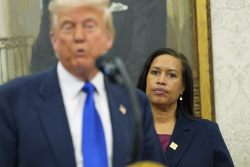On Thursday, August 28, 2025, an Israeli airstrike in Sanaa, the capital of Yemen, killed Ahmed Ghaleb al-Rahawi, the prime minister of the Houthi rebel-controlled government, along with several of his ministers.
This incident, confirmed by the Houthis on Saturday, August 30, has triggered a wave of threats of retaliation and heightened tensions in a region already scarred by prolonged conflicts.
The Iran-backed Houthis have promised “dark days” for Israel, while Benjamin Netanyahu’s government justifies the attack as a response to the rebel group’s aggressions.
The attack occurred during a routine Houthi cabinet meeting, where officials were evaluating their performance over the past year, according to a statement issued by the Houthi presidency and reported by Al Jazeera.
The rebels, who have controlled Sanaa and large areas of northern and western Yemen since 2014, accused Israel of committing a “heinous crime” and a “flagrant violation of Yemeni sovereignty.” Mahdi al-Mashat, leader of the Houthi Supreme Political Council, warned in a televised speech that “vengeance never sleeps” and vowed severe retaliation against Netanyahu’s government.
Israeli sources, estimate that the attack eliminated much of the Houthi cabinet, though the rebels have not specified the exact number of casualties. According to the Saudi outlet Al-Hadath, the ministers of Foreign Affairs, Justice, Youth and Sports, and Social Affairs and Labor were among those killed.
Other officials sustained serious injuries and are receiving medical treatment. In response, the Houthis appointed Muhamad Meftah, the deputy prime minister, as the interim government leader.
The Israeli military confirmed that the attack targeted a “military objective” in Sanaa but provided no further details on the operation. Israeli Defense Minister Israel Katz described the strike as “unprecedented” and warned that Israel would continue to eliminate threats against its citizens.
This attack is part of an escalation of hostilities between Israel and the Houthis, which began after the onset of the Gaza war in October 2023. The rebels have launched missiles and drones against Israeli territory and ships in the Red Sea, justifying these actions as acts of solidarity with the Palestinians.
Yemen, mired in a civil war since 2014, faces one of the world’s worst humanitarian crises, with hundreds of thousands dead and millions in vulnerable conditions. Israeli airstrikes, combined with internal instability, exacerbate the situation.
The Houthis have vowed that their institutions will continue to function, but the loss of key figures like Al-Rahawi, appointed prime minister in August 2024, represents a significant blow.
On Sunday, August 31, 2025, Iran-backed Houthi rebels stormed the offices of two United Nations agencies in Sanaa, Yemen’s capital, one day after confirming that an Israeli airstrike killed their prime minister, Ahmed al-Rahawi, and several ministers on Thursday, August 28.
The targeted UN agencies included the World Food Programme (WFP) and the United Nations Children’s Fund (UNICEF).
According to agency spokespersons, Houthi forces detained at least 11 UN staff members, including one WFP employee and several UNICEF workers. The UN’s special envoy for Yemen, Hans Grundberg, and Secretary-General António Guterres strongly condemned the detentions and the forced entry into UN premises, demanding the immediate release of those detained.
The Houthi assault on UN facilities is seen as a retaliatory response to the Israeli airstrike, which the rebels have vowed to avenge, escalating tensions in an already volatile region.
The belligerent rhetoric from both sides does not bode well for de-escalation. While the Houthis call for a boycott of Israeli goods and warn foreign companies operating in Israel, Netanyahu has reiterated that any aggression against his country will carry a “high price.”
This exchange of threats could further disrupt maritime routes and destabilize the region, impacting global trade and security.
About The Author
Post Views: 6
👁️ 6 vistas

















